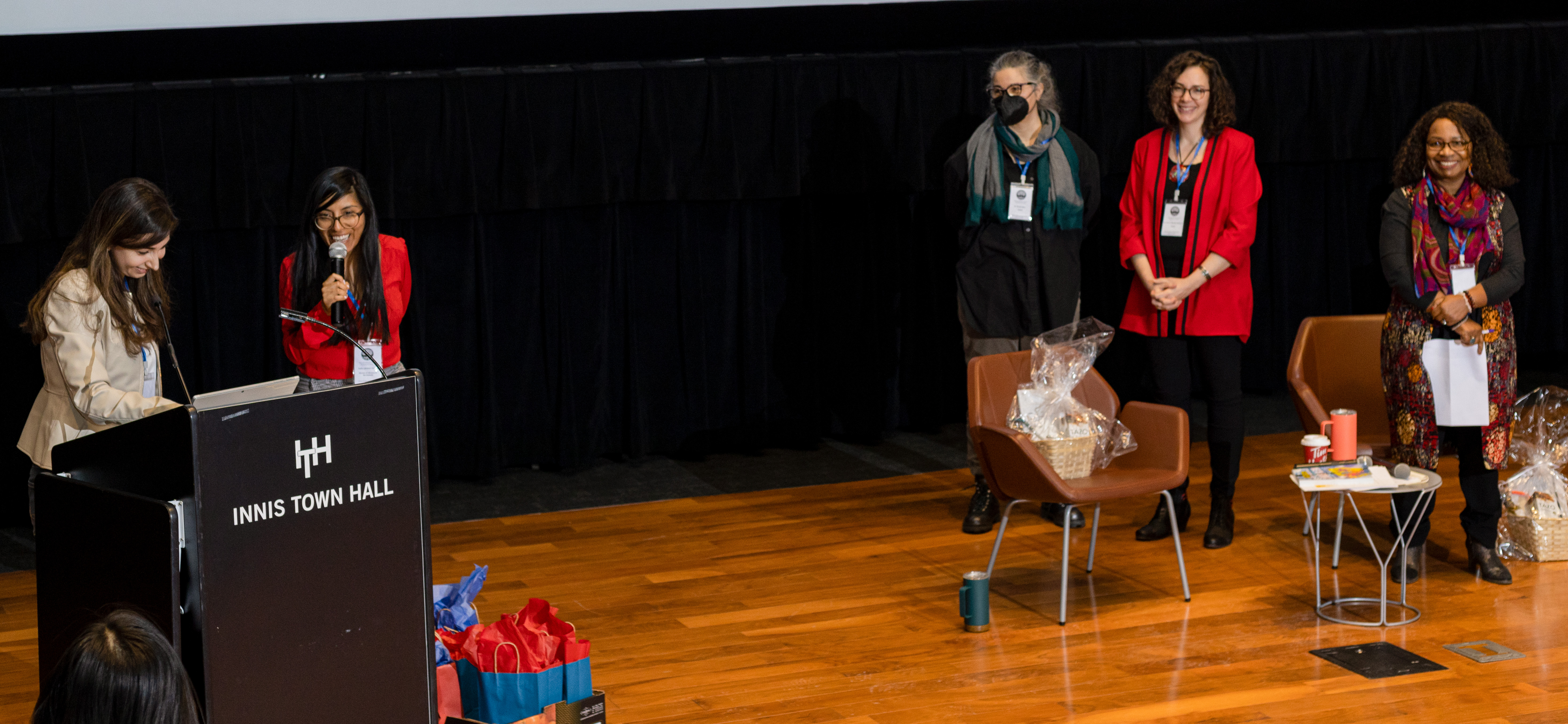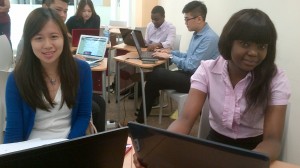 It was such a privilege to share the stage with Dr. Terezia Zoric and Dr. Njoke Wane from Social Justice Studies in Education (University of Toronto) and Dr. Kien Nam Luu superintendent of the York Region District School Board. The event was a panel on the Impact of Racism in Education run by the amazing graduate students of the Race and Ethnicity Caucaus (REC). Many thanks to Shelly Khuzal for her incredible organizing.
It was such a privilege to share the stage with Dr. Terezia Zoric and Dr. Njoke Wane from Social Justice Studies in Education (University of Toronto) and Dr. Kien Nam Luu superintendent of the York Region District School Board. The event was a panel on the Impact of Racism in Education run by the amazing graduate students of the Race and Ethnicity Caucaus (REC). Many thanks to Shelly Khuzal for her incredible organizing.
Dr. Zoric and Dr. Wane spoke powerfully about the fight for equity that we face at every level of institutional education. They also offered personal advice on the need for a spiritual centre or “grounding” outside of the institutions that are so damaged. It was a powerful reminder, as Dr. Zoric said “institutions will never love you back, so ground yourself outside.” This conversation on how to keep ourselves whole as we fight for change is so needed.
My own contribution was from the heart – a reflective piece on anti-racist education within the university classroom. How do we make space for our students’ personal stories? How do we find the bravery to tackle the hard questions about racism and injustice? How do we practice self-reflection and restructure our classrooms in response?
Universities, more than many organizations, provide individuals with significant gatekeeping power because of their collegial decisionmaking model. This means that if one or two of the members on your tenure committee are racist or sexist, they will have significant power to influence your promotion. The power of individuals needs to be tackled by the power of groups, social movements (a la Parker Palmer) and the strength we find in them to fight these inequities. This can take the form of women meeting for coffee and encouraging each other or panels like the above, where the moderators encourage the speakers to share from the heart. Only when we are less alone, can we find the strength to power
My last thought on aloneness is that introducing our students to powerful writers (bell hooks, Parker Palmer) is a way to decrease aloneness. The writings are many of the things that sustain us when we feel we are the only one challenging the powerful gatekeepers of the university.



